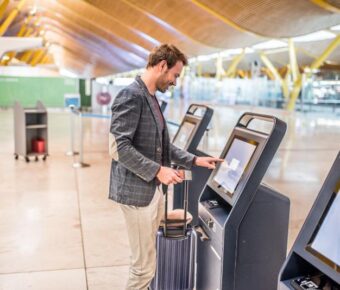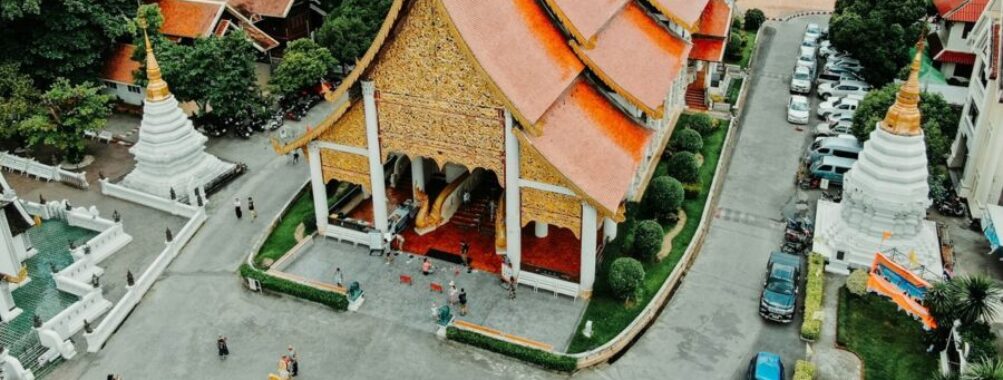
Is Chiang Mai Safe? 5 Insider Tips for Worry-Free Travel in Thailand’s Cultural Gem
Chiang Mai, a gem in northern Thailand, attracts millions of visitors each year. But is it safe? The short answer is yes – Chiang Mai is generally safe for tourists, solo travelers, and digital nomads alike. The city boasts a rich cultural heritage and stunning architecture, making it a popular destination for those seeking an authentic Thai experience.
While Chiang Mai is relatively safe, it’s not without its challenges. Petty theft can be an issue, so visitors should stay alert and keep an eye on their belongings. The burning season, which typically runs from February to mid-April, can lead to poor air quality. During this time, travelers with respiratory issues may want to consider alternative dates for their visit.
Table of Contents
- Overview of Chiang Mai
- Safety in Chiang Mai
- General Safety Concerns
- Crime Rate and Common Criminal Activities
- Burning Season and Environmental Concerns
- Precautions for Specific Groups
- Solo Travelers and Safety
- Advice for Female Travelers
- Transportation Safety
- Public Transport Options in Chiang Mai
- Rental Vehicles and Safety
- Avoiding Scams and Corruption
- Common Tourist Scams
- Dealing with Police and Corruption
- Health and Medical Information
- Health Issues and Insurance
- Emergency Services and Support
- Local Life and Cultural Insights
- Interacting with Locals and Expatriate Communities
- Cultural Norms and Respect for Traditions
- Leisure and Attractions Safety
- Enjoying Chiang Mai’s Nightlife Safely
- Outdoor Activities and National Parks
- Practical Travel Tips for Chiang Mai
- Navigating the City and Connectivity
- Accommodations and Safe Stays
- Mitigating Risks of Petty Theft
- Protecting Belongings and Personal Safety
- Awareness of Surroundings and Situational Safety
- Chiang Mai During Unrest or Natural Events
- Political Unrest and Its Impact on Safety
- Natural Disasters Preparedness
- Frequently Asked Questions
- What safety concerns should tourists be aware of when visiting Chiang Mai?
- How does the safety of solo female travelers in Chiang Mai compare to other Thai cities?
- Can visitors experience Chiang Mai safely during nighttime activities?
- What local advice should travelers heed to stay safe in Chiang Mai?
- Are there any current travel advisories that tourists should know before traveling to Chiang Mai?
- What precautions are recommended for travelers in Chiang Mai in terms of health and wellness?
- Book Your Dream Experience
- More Travel Guides
Overview of Chiang Mai
Chiang Mai is a vibrant city in northern Thailand that’s become a hot spot for tourists and digital nomads alike. It’s got a cool mix of old-world charm and modern vibes.
The Old City is the heart of Chiang Mai. It’s surrounded by ancient walls and moats, giving it a real medieval feel. Inside, you’ll find narrow streets lined with temples, cafes, and shops.
Speaking of temples, Chiang Mai’s got loads of them! Some of the most famous are Wat Phra Singh and Wat Chedi Luang. These beauties show off the city’s rich cultural heritage.
Chiang Mai’s not just about history, though. It’s a bustling tourist destination with tons to do. From night markets to cooking classes, there’s always something going on.
The city’s also become a magnet for expats and digital nomads. They’re drawn by the laid-back lifestyle and low cost of living. This international crowd adds to Chiang Mai’s diverse atmosphere.
Is Chiang Mai worth visiting? You bet! It offers a unique blend of culture, nature, and modern amenities. Plus, it’s a great base for exploring the rest of northern Thailand.
Just keep in mind the burning season from February to April. The air quality can get pretty bad during this time. But overall, Chiang Mai’s a gem that’s definitely worth checking out.
Safety in Chiang Mai
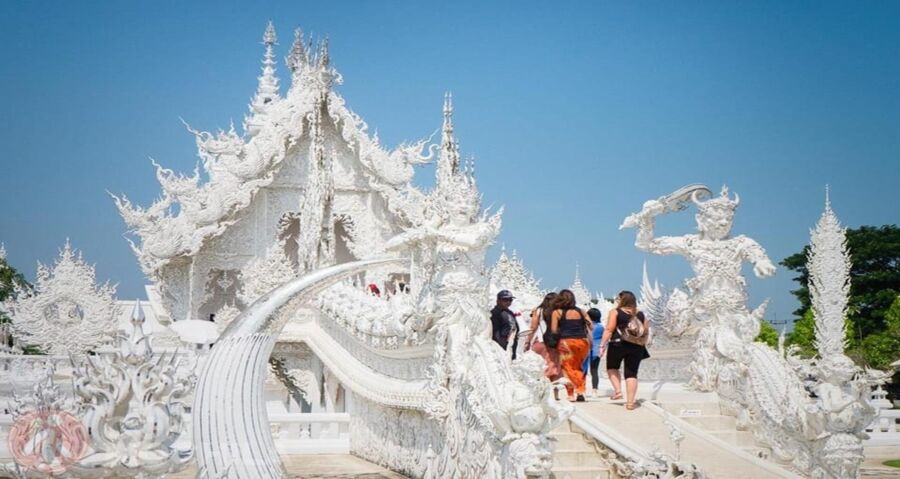
Chiang Mai is generally a safe city for travelers, but it’s smart to be aware of a few key issues. Let’s look at the main safety concerns, crime situation, and environmental factors to keep in mind.
General Safety Concerns
Chiang Mai feels pretty safe compared to many other cities. Most tourists have no big problems walking around, even at night. The locals are known for being friendly and welcoming. But it’s still a good idea to use common sense, just like anywhere else you might travel.
Keep an eye on your stuff, especially in crowded areas. Pickpockets can be sneaky! It’s best not to flash expensive jewelry or gadgets around. And ladies, try to avoid walking alone late at night in quiet areas.
Traffic can be a bit crazy here. Be extra careful when crossing streets or riding motorbikes. Those tuk-tuks are fun, but make sure you agree on a price before hopping in.
Crime Rate and Common Criminal Activities
The crime rate in Chiang Mai is pretty low. It’s much safer than Bangkok or Pattaya. Violent crimes against tourists are rare. But petty theft does happen sometimes.
Watch out for common scams:
- Fake gems or jewelry deals
- Tuk-tuk drivers who take you to shops for commissions
- “Helpful” strangers who offer to guide you somewhere
Drugs are a big no-no in Thailand. The penalties are super harsh, even for small amounts. It’s just not worth the risk!
If you rent a motorbike, be careful. Some rental shops try to charge for fake damage. Take photos of the bike before you ride off.
Burning Season and Environmental Concerns
The burning season is a real bummer for Chiang Mai. From February to April, farmers burn their fields. This makes the air quality awful. It can be dangerous, especially for people with breathing issues.
During these months:
- Check air quality reports daily
- Wear a good mask when outside
- Stay indoors on really bad days
- Consider planning your trip for a different time of year
Outside of burning season, the air is usually fine. But it’s smart to stay hydrated and use sunscreen. The tropical sun can be intense!
Tap water isn’t safe to drink. Stick to bottled water to avoid tummy troubles. Food from street vendors is usually safe and yummy, but use your judgment. If a place looks dirty, maybe skip it.
Precautions for Specific Groups
Chiang Mai is generally safe, but some travelers may need to take extra care. Certain groups should be aware of specific risks and take steps to protect themselves.
Solo Travelers and Safety
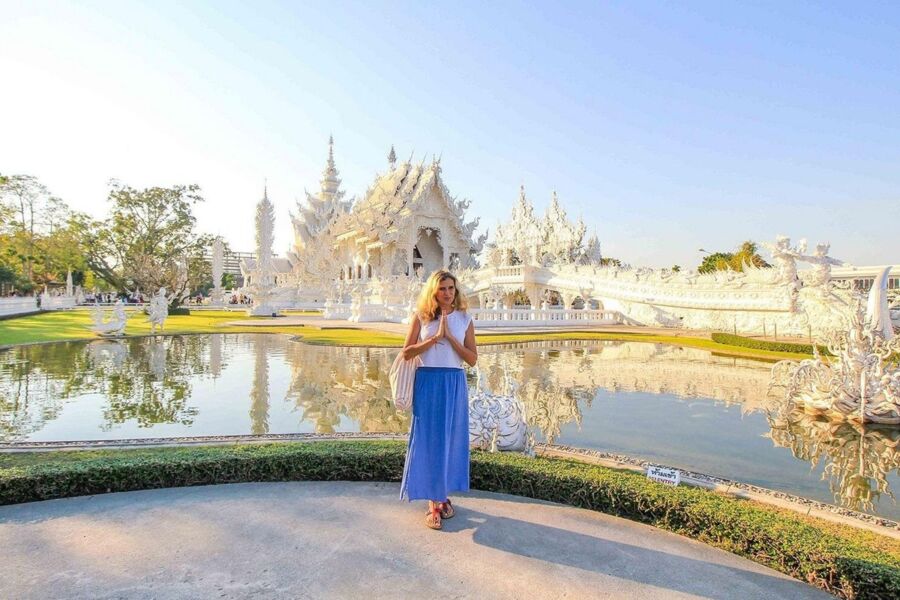
Solo travelers in Chiang Mai should stay alert, especially at night. It’s smart to tell someone your plans and stay in touch with family or friends. Stick to well-lit areas and busy streets after dark.
Don’t flash expensive items or large amounts of cash. Keep your belongings close and use hotel safes for valuables. Trust your gut – if something feels off, leave the situation.
Join group tours or activities to meet other travelers. This can be safer and more fun than exploring alone. Hostels are great for meeting people too.
Learn a few Thai phrases. Locals often appreciate the effort and may be more willing to help if needed.
Advice for Female Travelers
Female travelers can feel pretty safe in Chiang Mai, but a few extra precautions help. Dress modestly, especially when visiting temples or rural areas. This shows respect and avoids unwanted attention.
Be careful with alcohol, especially if you’re alone. Watch your drinks and don’t accept them from strangers. Take official taxis or rideshares at night instead of tuk-tuks.
Some women-only accommodations exist in Chiang Mai. These can offer extra peace of mind.
Trust your instincts. If a situation feels uncomfortable, leave. It’s okay to be firm when saying no to pushy vendors or unwanted advances.
Carry a charged phone and know emergency numbers. Consider a safety app that shares your location with trusted contacts.
Transportation Safety
Getting around Chiang Mai can be tricky for newcomers. The city has some unique transport options that take a bit of getting used to. But with the right know-how, you can navigate safely and cheaply.
Public Transport Options in Chiang Mai
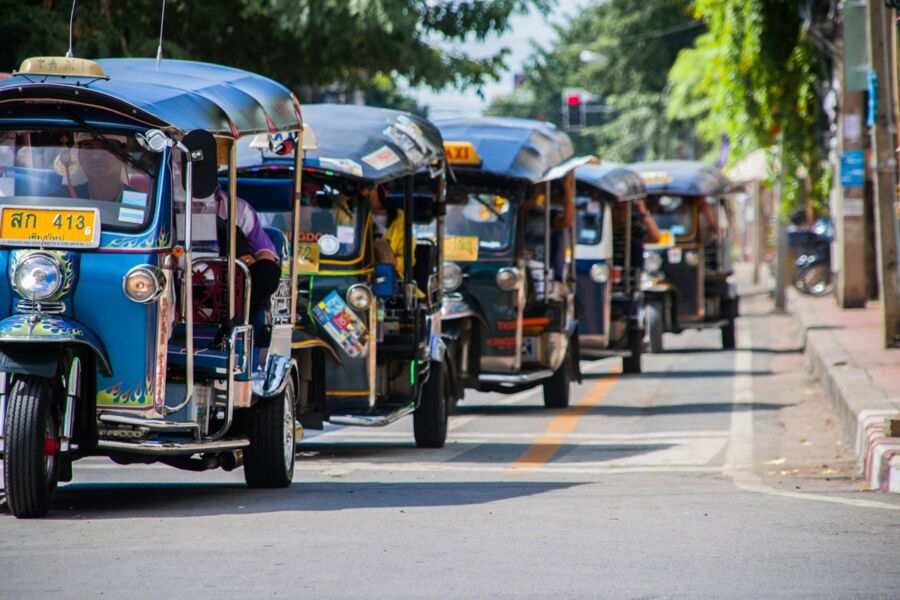
Tuk-tuks and songthaews are the main ways to get around Chiang Mai. Tuk-tuks are those little three-wheeled vehicles you’ve probably seen in photos. They’re fun for short trips, but not the safest option. Songthaews are red trucks with bench seats in the back. They’re cheaper than tuk-tuks and a bit safer.
For longer trips, Grab (like Uber) is a good choice. It’s safer than hailing a random tuk-tuk and the prices are set in advance. No haggling needed!
Watch out for tuk-tuk scams. Some drivers might try to overcharge or take you to shops that give them kickbacks. Agree on a price before getting in.
Rental Vehicles and Safety
Lots of tourists rent scooters in Chiang Mai. It’s a cheap way to explore, but it can be dangerous. The roads are busy and local driving habits take some getting used to.
If you do rent a scooter, always wear a helmet. Check the bike carefully for damage before taking it. Take photos of any existing scratches or dents.
An international driver’s license is technically required to rent a scooter. Some shops might rent to you without one, but you could get in trouble if stopped by police.
Driving in the mountains around Chiang Mai is risky. The roads are steep and winding. Accidents are common. If you’re not an experienced rider, it’s best to stick to the city or join a guided tour instead.
Avoiding Scams and Corruption
Chiang Mai is mostly safe, but tourists should watch out for a few common scams and corrupt practices. Being aware and prepared can help you avoid trouble and enjoy your trip.
Common Tourist Scams
The gem scam is one to watch for in Chiang Mai. Shady dealers try to sell fake gems at inflated prices. Don’t buy gems unless you really know what you’re doing.
Tuk-tuk drivers sometimes pull fast ones too. They might say a place you want to visit is closed, then offer an overpriced tour of gift shops instead. Stick to your plans and don’t let drivers change your route.
Pickpocketing can happen in crowded areas. Keep valuables close and be aware in busy markets or tourist spots. Using a money belt under your clothes is smart.
Some shops have rigged scales to overcharge for goods. Check prices at a few places before buying souvenirs or local products.
Dealing with Police and Corruption
Bribery is an issue with some police in Thailand. If stopped, stay calm and polite. Ask for a ticket rather than paying on the spot.
Keep copies of your passport and visa. Leave the real ones in your hotel safe. This helps if police ask to see your documents.
Learn basic traffic laws to avoid giving cops excuses to stop you. Wear helmets on motorbikes and follow road rules.
If pressured to pay a bribe, say you need to call your embassy first. This often makes corrupt officers back off.
Report any serious incidents to your embassy. They can advise on dealing with local authorities properly.
Health and Medical Information
Chiang Mai offers decent healthcare, but travelers should take some precautions. Knowing what to expect and how to stay healthy can make your trip much smoother.
Health Issues and Insurance
Mosquito-borne illnesses like dengue fever can be a concern in Chiang Mai. Use bug spray and cover up, especially at dawn and dusk. The tap water isn’t safe to drink, so stick to bottled water.
It’s smart to get travel insurance before your trip. SafetyWing is popular with digital nomads and long-term travelers. Make sure your policy covers any activities you plan to do, like motorcycling or trekking.
Don’t forget to pack any medications you take regularly. Pharmacies in Chiang Mai can fill many prescriptions, but it’s best to bring your own supply.
Emergency Services and Support
In case of emergency, dial 1669 for an ambulance in Thailand. Chiang Mai has some good hospitals with English-speaking staff. Chiang Mai Ram Hospital and Bangkok Hospital Chiang Mai are two top choices for travelers.
For less urgent issues, many clinics offer walk-in appointments. Some even cater specifically to expats and tourists.
It’s a good idea to save these emergency numbers in your phone:
- Tourist Police: 1155
- Regular Police: 191
- Fire: 199
Keep your embassy’s contact info handy too, just in case. They can help if you lose your passport or have other serious problems.
Local Life and Cultural Insights
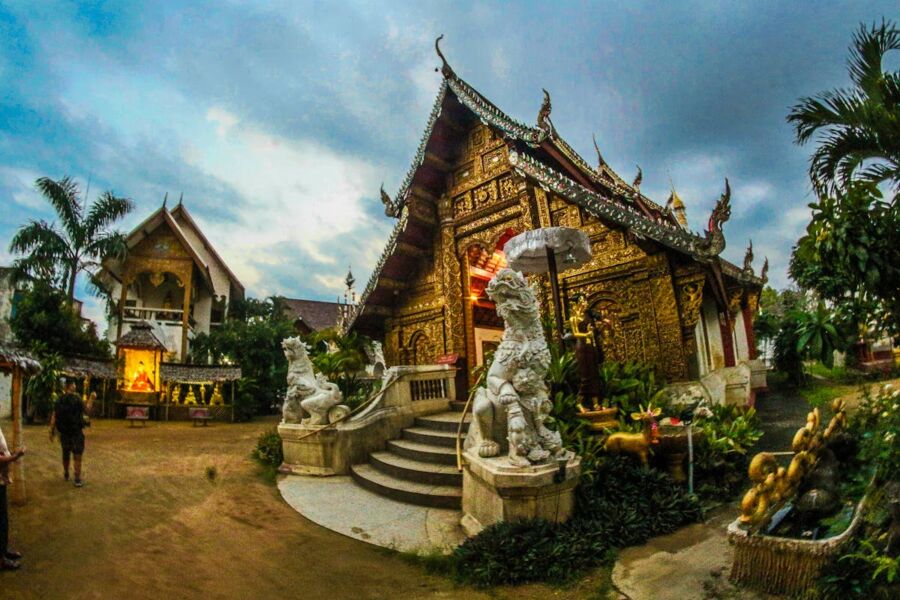
Chiang Mai offers a unique blend of traditional Thai culture and modern influences. The city’s warm and friendly locals welcome visitors, making it easy to immerse yourself in the local way of life.
Interacting with Locals and Expatriate Communities
Chiang Mai’s locals are known for their kindness and hospitality. They often greet visitors with a smile and are happy to help with directions or recommendations. Learning a few basic Thai phrases can go a long way in building rapport.
The city also has a thriving expat community. Many foreigners have made Chiang Mai their home, drawn by its laid-back lifestyle and low cost of living. This mix creates a diverse and welcoming atmosphere for travelers.
Expats often organize events and meetups, which can be a great way to connect with both locals and fellow travelers. These gatherings range from language exchanges to cultural workshops.
Cultural Norms and Respect for Traditions
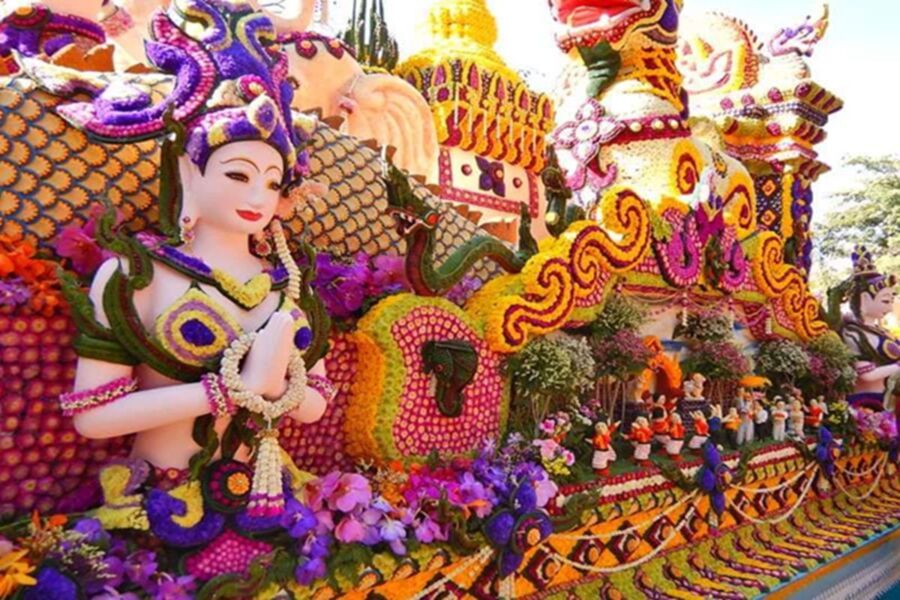
Respecting Thai customs is key to a positive experience in Chiang Mai. The Thai royal family is highly revered, so you must show respect when discussing or encountering royal-related topics or images.
Religious sites are sacred spaces. Visitors should dress modestly, covering shoulders and knees when entering temples. Also, remove shoes before stepping inside buildings or homes.
The annual Flower Festival is a major cultural event. It showcases Chiang Mai’s natural beauty and artistic talents. Joining in local celebrations like this can deepen your understanding of Thai traditions.
When in doubt about cultural norms, observe how locals behave. Polite and respectful behavior is always appreciated.
Leisure and Attractions Safety
Chiang Mai offers plenty of fun and excitement for visitors, but you must stay aware of your surroundings. Taking some basic precautions can help ensure you have a great time exploring the city’s nightlife and natural wonders.
Enjoying Chiang Mai’s Nightlife Safely
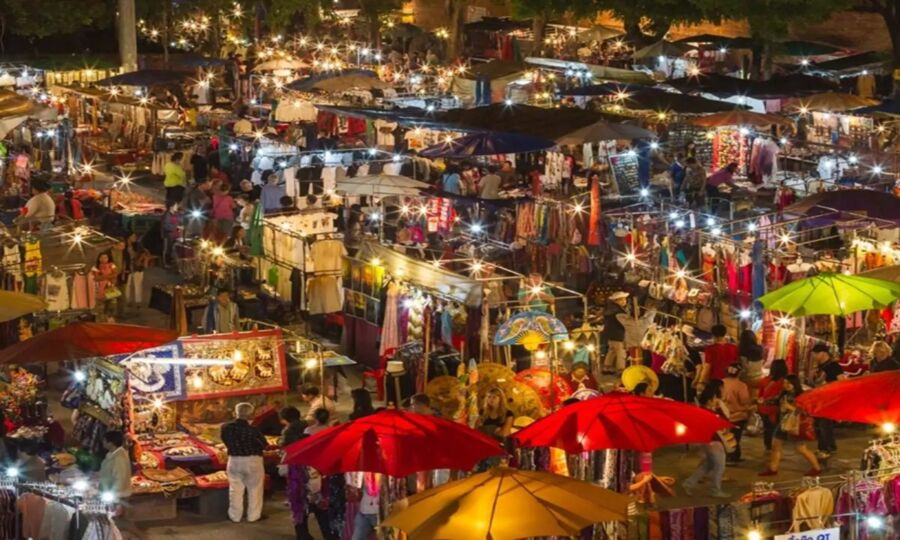
Chiang Mai comes alive after dark with bustling night markets and lively bars. The Night Bazaar is a popular spot to grab dinner, shop for souvenirs, and people-watch. It’s generally safe, but keep an eye on your belongings in crowded areas.
The Sunday Night Market along Ratchadamnoen Road is another must-visit. Vendors sell everything from street food to handmade crafts. It gets packed, so arrive early to beat the crowds.
For those hitting the bars, stick to well-lit areas and don’t accept drinks from strangers. Taking a tuk-tuk or ride-share is safer than walking alone late at night. Trust your instincts and leave any situation that feels sketchy.
Outdoor Activities and National Parks
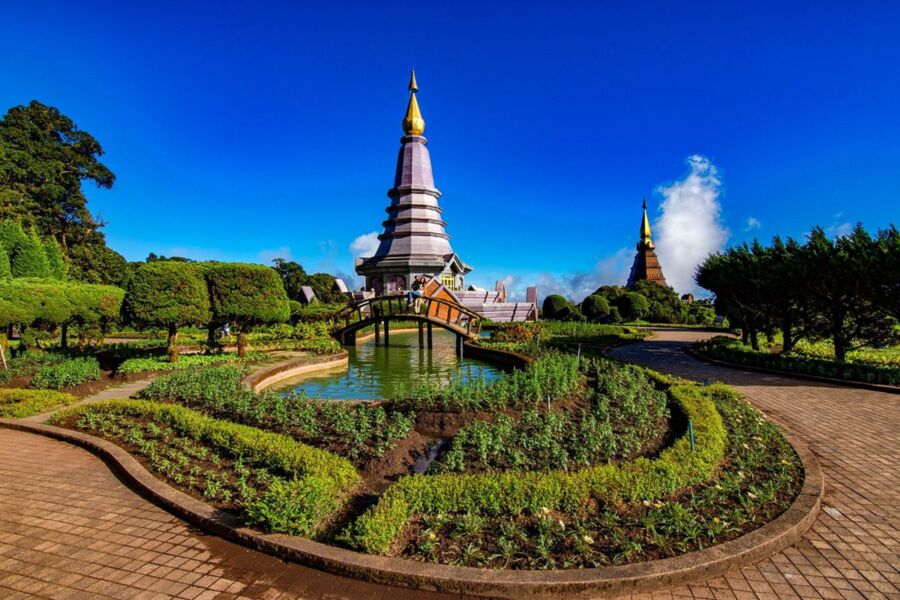
Chiang Mai’s surrounding mountains and forests offer breathtaking scenery and adventure. Doi Inthanon National Park is home to Thailand’s highest peak and stunning waterfalls. Stick to marked trails and bring plenty of water when hiking.
Wat Phra That Doi Suthep, perched on a mountain overlooking the city, is a must-see temple. The winding drive up can be tricky, so consider hiring a driver familiar with the route. Watch out for monkeys near the temple – they may grab bags or food.
Many tour companies offer zip-lining, white water rafting, and other outdoor activities. Book through reputable operators with good safety records. Always use provided safety gear and listen carefully to guides’ instructions.
Practical Travel Tips for Chiang Mai
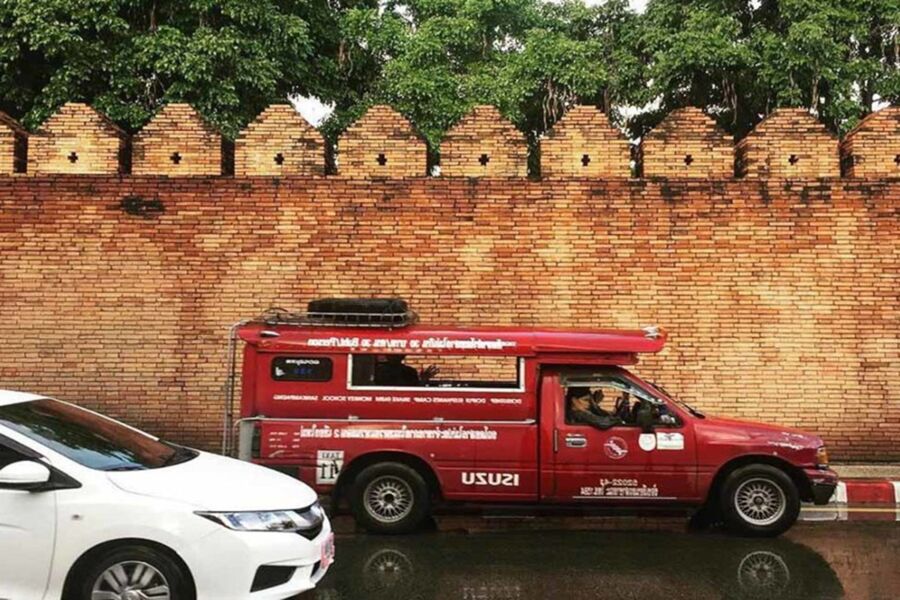
Chiang Mai offers a blend of culture and convenience for travelers. These tips will help you navigate the city safely and find comfortable accommodations.
Getting around Chiang Mai is easy with a mix of old and new options. Grab a local SIM card or eSIM at the airport for data on the go. Download offline maps to your phone as a backup.
The Grab app is super handy for booking rides. It’s like Uber but cheaper and more widely used here. For short trips, flag down a red songthaew (shared taxi). Just tell the driver where you’re headed and hop in!
Tapae Gate is a good landmark to remember. It’s the main entrance to the old city and a popular meeting spot. From there, you can walk to lots of temples and cafes.
Accommodations and Safe Stays
Chiang Mai has loads of great places to stay, from budget hostels to fancy resorts. The old city is a safe bet for first-timers. It’s walkable and full of charm.
Look for guesthouses with good reviews from solo travelers. Many offer bike rentals, which is a fun way to explore. Just be careful on the busy roads!
For longer stays, consider an apartment near Nimman Road. It’s a hip area with cafes and co-working spaces. Perfect if you need to get some work done.
Always double-check the lock on your room door. It’s generally safe, but it’s smart to be careful with your stuff. Most places have safes for valuables.
Mitigating Risks of Petty Theft
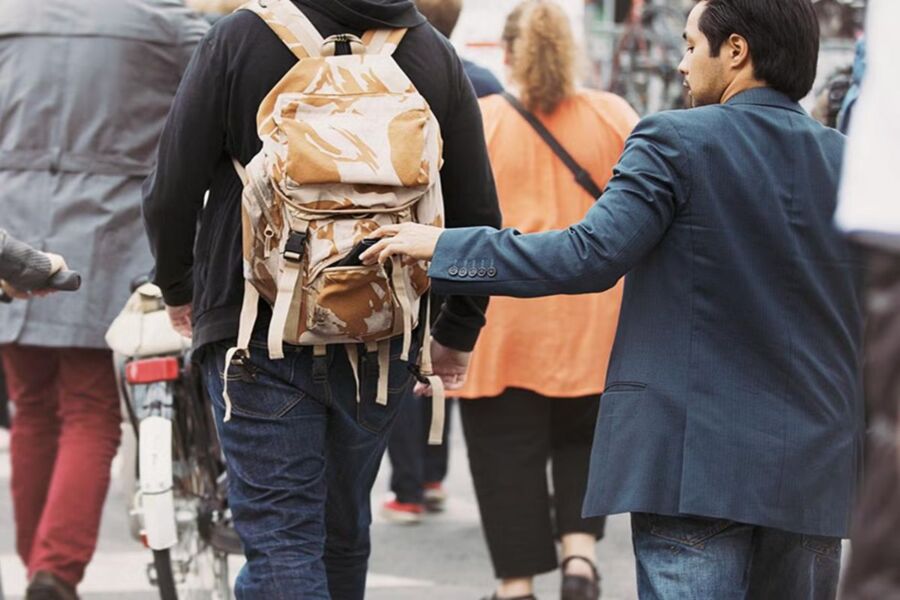
Tourists can take simple steps to protect themselves from pickpockets and bag snatchers in Chiang Mai. Being aware of surroundings and using common sense go a long way in staying safe.
Protecting Belongings and Personal Safety
Keep valuables close and out of sight. Use a money belt or hidden pouch under clothes for cash and important documents. Don’t flash expensive jewelry or gadgets in public. Carry bags and purses across the body, not dangling from one shoulder.
In crowded areas like markets or festivals, wear backpacks on the front. Use locks on luggage zippers. Leave passports in the hotel safe and carry a photocopy instead. Split up money between different pockets or hiding spots.
At restaurants or cafes, keep bags on your lap or between your feet. Don’t leave phones on tables. Be extra careful in busy tourist spots and on public transport.
Awareness of Surroundings and Situational Safety
Stay alert, especially in crowded places. Avoid walking alone late at night in quiet areas. Stick to well-lit main streets after dark. Don’t accept drinks from strangers or leave drinks unattended.
Be wary of overly friendly locals offering deals or inviting you places. Politely decline pushy tuk-tuk drivers or tour guides. Trust your instincts if a situation feels off.
Learn common scams targeting tourists. Be cautious of distraction techniques like someone “accidentally” spilling something on you. Keep an eye out for pickpocket teams working together.
Use reputable taxis or ride-hailing apps instead of unlicensed drivers. Ask your hotel about areas to avoid. The safety index is generally good, but petty crimes can happen anywhere.
Chiang Mai During Unrest or Natural Events
Chiang Mai faces occasional challenges from political unrest and natural events. Being prepared and informed can help travelers stay safe during these situations.
Political Unrest and Its Impact on Safety
Chiang Mai has seen its share of political protests over the years. These events can disrupt daily life and travel plans. During times of unrest, it’s best to avoid large gatherings and protest areas.
Tourists should keep an eye on local news and follow advice from their embassies. Most protests are peaceful, but things can change quickly. It’s smart to have a backup plan for getting around if roads are blocked.
Some travelers choose to leave the city if tensions rise. Others find that life goes on as normal in many parts of town. The key is staying alert and using common sense.
Natural Disasters Preparedness
Chiang Mai sits in a region prone to natural disasters. Earthquakes, floods, and landslides can happen. The city also deals with a yearly burning season that affects air quality.
During rainy season (May to October), flash floods are possible. Travelers should check weather reports and avoid low-lying areas after heavy rain. For earthquakes, know the safe spots in your hotel or guesthouse.
The burning season (February to April) brings smoky skies. People with breathing issues might want to avoid this time. If you visit then, bring a good face mask and stay indoors on bad air days.
To stay safe, follow local warnings and have an emergency plan. Keep important documents and some cash handy. Know where to get help if you need it.
Frequently Asked Questions
Chiang Mai is generally safe, but visitors should be aware of a few key things to ensure a smooth trip. Let’s address some common concerns travelers have about safety in this northern Thai city.
What safety concerns should tourists be aware of when visiting Chiang Mai?
Tourists should watch out for pickpockets in crowded areas like markets and temples. It’s smart to keep valuables close and use a money belt. Traffic can be chaotic, so be extra careful when crossing streets. During burning season (February to April), air quality can be poor. Visitors with breathing issues might want to plan trips outside this time.
How does the safety of solo female travelers in Chiang Mai compare to other Thai cities?
Chiang Mai is quite safe for solo female travelers. Many women feel more comfortable here than in busier cities like Bangkok. The laid-back vibe and friendly locals help. Still, it’s wise to stay alert, especially at night. Stick to well-lit areas and trust your gut if a situation feels off.
Can visitors experience Chiang Mai safely during nighttime activities?
Yes, nighttime in Chiang Mai can be safe and fun. The Night Bazaar and Sunday Walking Street are popular after dark. Many people are out and about, making these areas feel secure. It’s best to take a tuk-tuk or grab for late-night trips back to your hotel. Avoid walking alone in quiet areas late at night.
What local advice should travelers heed to stay safe in Chiang Mai?
Locals suggest drinking bottled water to avoid stomach issues. It’s also smart to use reputable tour companies for excursions. Be respectful at temples by covering shoulders and knees. Don’t pet stray dogs or cats, no matter how cute they look. When renting a motorbike, always wear a helmet and drive carefully.
Are there any current travel advisories that tourists should know before traveling to Chiang Mai?
As of January 2025, there are no major travel advisories for Chiang Mai. It’s always good to check with your country’s embassy before traveling. They post updates about any safety concerns. Right now, the main issue to watch is air quality during burning season.
What precautions are recommended for travelers in Chiang Mai in terms of health and wellness?
Travelers should get travel insurance that covers medical care. It’s a good idea to pack any prescription meds you need. Sunscreen and mosquito repellent are must-haves. If you plan to visit rural areas, check if you need any special vaccines. In the city, there are good hospitals if you need medical help.


